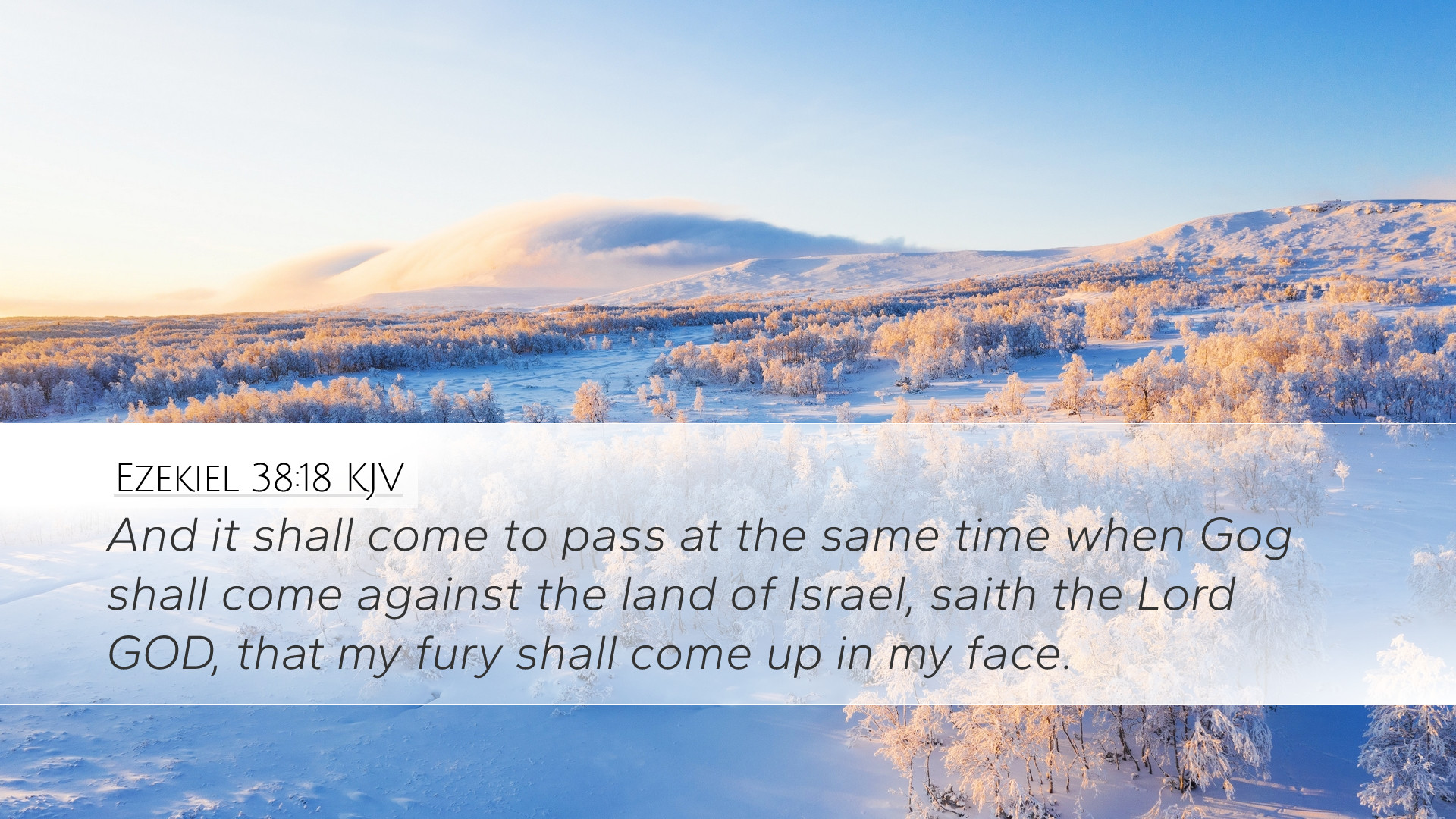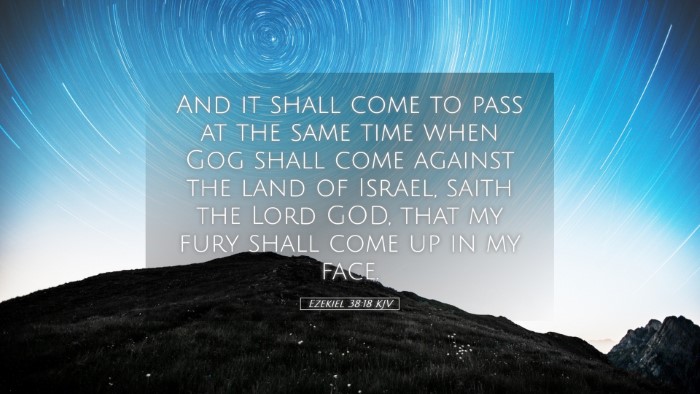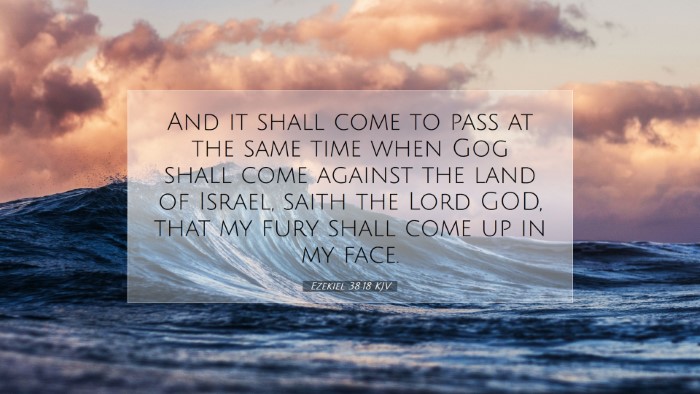Bible Commentary on Ezekiel 38:18
Bible Verse: Ezekiel 38:18 - "And it shall come to pass at the same time when Gog shall come against the land of Israel, saith the Lord God, that my fury shall come up in my face."
Introduction to Ezekiel 38
This chapter of Ezekiel is one of the most dramatic prophecies in the Old Testament, focusing on the eschatological conflict involving Gog of Magog and the future restoration of Israel. It presents a vivid portrayal of Gog's invasion and the divine judgment that follows. Scholars and theologians have debated the meaning and implications of these verses throughout history.
Contextual Background
The book of Ezekiel, written by the prophet Ezekiel during the Babylonian exile, contains numerous prophecies about judgment and restoration. Chapter 38 stands as a significant declaration against Gog, symbolizing opposition to God and His people.
Historical Context: The identity of Gog has often been debated, with interpretations ranging from historical figures to symbolic representations of opposition to God. The prophecy speaks not merely of a person but of a coalition of nations that will align against Israel.
Commentary Insights
Matthew Henry's Commentary
Matthew Henry highlights that the verse reflects God's perspective and the divine sadness at the impending invasion. His commentary points to the idea of God’s fury as a response to the violent intentions of Gog. Henry asserts that this wrath of God is not arbitrary; rather, it is a consequence of the evil that comes against His people.
Henry further elaborates that the phrase "my fury shall come up in my face" signifies an immediacy and directness of God’s anger—a response that is both justified and necessary in defense of His people. It showcases the intensity of God’s protection over Israel and underscores the notion of God as the sovereign defender.
Albert Barnes' Commentary
Albert Barnes emphasizes the prophetic nature of the verse, noting that it illustrates a future confrontation between good and evil. He interprets the coming of Gog as an established sign of the last days, where the enemies of God will gather to challenge His authority.
In Barnes' opinion, God's fury is revealed as a means of ensuring that His sovereignty is acknowledged. He suggests that this declaration serves both as a warning to the nations and a comfort to Israel, affirming that regardless of their circumstances, God remains in control and will act decisively against evil.
Adam Clarke's Commentary
Adam Clarke offers an in-depth theological reflection on the nature of divine judgment encapsulated in this verse. He interprets the mention of God's fury as a powerful and potent force, indicating that human opposition can provoke God's righteous anger.
Clarke elaborates on "Gog" as a representation of everything that opposes God's will, and how this opposition will ultimately fail when confronted by divine decree. He encourages readers to view this prophecy not merely as a forewarning of destruction but rather as a reassurance of God’s providence throughout history.
Theological Implications
The verse encapsulates several profound theological truths:
- God's Sovereignty: The assertion "saith the Lord God" reminds readers that all events unfold according to God's decree, emphasizing His ultimate authority over all nations.
- Divine Judgment: The explicit declaration of God's fury serves as a reminder of His righteous judgment against those who oppose Him.
- The Protection of Israel: This passage reflects God’s covenant faithfulness toward Israel, illustrating that His protective fury is an assurance to His chosen people.
- Eschatological Significance: The prophetic theme in this verse points to future eschatological events, reminding believers of the ultimate triumph of God over evil.
Application for Modern Readers
For pastors, students, and theologians, Ezekiel 38:18 serves as a crucial text for understanding God's nature and His relationship with His people. Here are a few applications:
- Encouragement in Trials: As believers face opposition and trials, this verse can be a source of encouragement, reminding them that God is a fierce protector.
- Call to Righteousness: The impending judgment on Gog serves as a call for righteousness and integrity among the faithful, challenging them to stand against evil.
- Hope in God's Justice: Understanding that God's fury arises out of injustice provides hope for those who suffer, as it assures believers that God is aware of their struggles and will act on their behalf.
- Awareness of Spiritual Warfare: This verse invites reflection on spiritual warfare, encouraging believers to engage in prayer and reliance on God’s strength in the face of opposition.
Conclusion
Ezekiel 38:18 is rich with meaning, offering both comfort and a solemn warning about the realities of divine judgment and the certainty of God's sovereignty over history. By integrating insights from public domain commentaries, readers can appreciate the depth of this verse, seeing it as both a promise and a challenge. It encapsulates the essence of God’s relationship with Israel, His enduring faithfulness, and the ultimate victory that awaits those who trust in Him.


